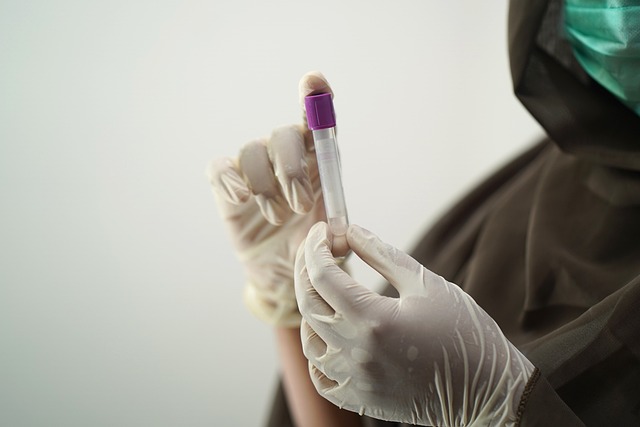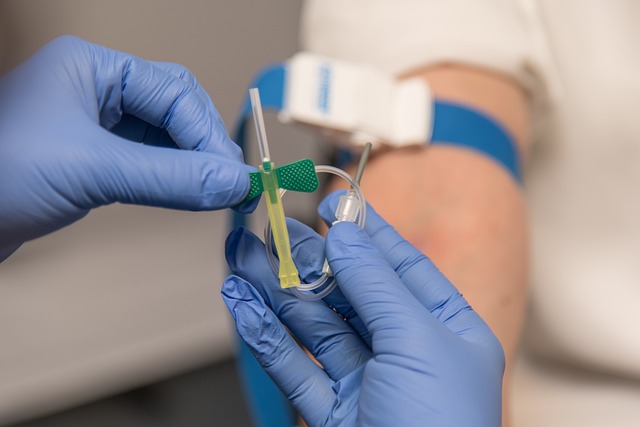The UK Male Hormone Blood Test is a self-administered at-home test kit designed to monitor key hormones critical for male health, including testosterone, LH, FSH, prolactin, TSH, and cortisol. This test helps assess male sexual health, muscle mass, energy levels, fertility, thyroid function, stress, and adrenal health. It provides valuable insights into hormonal imbalances or conditions that may affect these areas. The test is user-friendly; after purchasing online, individuals collect their blood sample at home using the provided kit, ensuring to follow instructions precisely for accurate results. Results are then reviewed by a healthcare provider through a secure online portal, enabling informed discussions about treatment and health management tailored to individual needs. This innovative approach to hormone testing empowers men with knowledge about their hormonal status and overall well-being, facilitating early intervention and personalized care.
navigating hormonal imbalances has become more accessible for men in the UK with the advent of at-home blood testing kits. These innovative tools enable individuals to self-monitor their health, offering insights into their unique hormonal status. This article serves as a guide to understanding and conducting a UK Male Hormone Blood Test from the comfort of your home, ensuring accurate results that can inform personalized health decisions. We’ll explore the test’s significance, the straightforward process for carrying it out, and how to interpret the findings to better understand your body’s hormonal balance.
- Understanding the UK Male Hormone Blood Test: A Comprehensive Guide for Self-Monitoring
- The Process: Step-by-Step Instructions on Conducting a Home Hormone Test in the UK
- Interpreting Your Results: What Do Your Hormone Levels Say About Your Health?
Understanding the UK Male Hormone Blood Test: A Comprehensive Guide for Self-Monitoring

For men in the UK seeking to maintain optimal health, understanding hormonal balance is crucial. The UK Male Hormone Blood Test offers a reliable method for self-monitoring key hormones that play pivotal roles in overall well-being. This comprehensive test measures levels of testosterone, luteinizing hormone (LH), follicle-stimulating hormone (FSH), prolactin, thyroid-stimulating hormone (TSH), and cortisol – all from the comfort of one’s home. Testosterone, often associated with male sexual health, muscle mass, and energy levels, can be assessed to monitor for conditions such as hypogonadism or to optimize performance and vitality. LH and FSH are equally important; they signal the testes to produce testosterone and sperm, respectively. Monitoring these gonadotropins can provide insights into male fertility and hormonal health. Prolactin, which plays a role in sexual function, can also be measured to identify potential issues like hyperprolactinemia that might affect libido or cause fertility problems. Thyroid hormones are essential for metabolism, mood, and overall health, making TSH a vital marker to track. Cortisol, the body’s primary stress hormone, can indicate adrenal health and how well one is coping with stress. By understanding the results of these hormone levels through home blood testing kits, men can proactively address any imbalances or concerns with their healthcare provider, facilitating early intervention and personalized treatment plans. This empowers individuals to take charge of their health, offering peace of mind and a pathway to wellness.
The Process: Step-by-Step Instructions on Conducting a Home Hormone Test in the UK

In the United Kingdom, individuals seeking to monitor their hormonal health can opt for a home hormone test, specifically the UK Male Hormone Blood Test. This process allows for the convenient and private collection of blood samples from the comfort of one’s home. To initiate the test, begin by ordering the kit online from a reputable service provider authorised to conduct such tests in the UK. Upon receipt, follow these step-by-step instructions:
Firstly, thoroughly read the kit’s instructions and safety information. Ensure you have all necessary supplies, including alcohol swabs, lancets, sterile gauze, a sharp object to open the lancet, and the provided collection tubes. Locate a clean and flat workspace for the procedure. Use the lancet to gently prick the fingertip on your preferred hand, traditionally the forefinger. Apply pressure with the sterile gauze to stop the bleeding after the drop of blood appears.
Next, apply a new alcohol swab to the puncture site to clean it. Then, carefully place a collection tube under the finger and squeeze the side of the tube to encourage blood flow until you fill the tube to the designated mark, usually around one-third to one-half full. Once completed, replace the cap on the tube to prevent the blood from clotting and affecting test accuracy.
After collecting the required amount of blood, use the return envelope provided to send your sample to the laboratory. The lab will then analyse your hormone levels, particularly focusing on those relevant to male health, such as testosterone, estrogen, and other androgens. Upon receiving the results, which are often accessible through a secure online portal, you can discuss them with your healthcare provider to understand what they indicate about your hormonal balance and overall well-being.
It’s crucial to follow the kit’s guidelines precisely to ensure accurate results. If at any point you encounter difficulties or have questions, reach out to the test provider’s customer support for assistance. Remember to maintain the integrity of the sample by adhering to the handling instructions and completing the test within the expiration date indicated on the kit.
Interpreting Your Results: What Do Your Hormone Levels Say About Your Health?

Home blood testing has revolutionised the way individuals monitor their health, particularly with the advent of tests like the UK Male Hormone Blood Test. This test provides a comprehensive analysis of key hormones crucial for male health, including testosterone, luteinising hormone (LH), follicle-stimulating hormone (FSH), prolactin, thyroid-stimulating hormone (TSH), and more. Understanding the results of such a test is pivotal in determining an individual’s hormonal balance and overall wellbeing.
Interpreting your results from a UK Male Hormone Blood Test requires a combination of medical expertise and personal health context. For instance, testosterone levels can indicate whether an individual is experiencing hormonal imbalance that might be affecting their energy levels, muscle mass, sex drive, or mood. Elevated LH and FSH could suggest issues with sperm production or fertility. Prolactin levels that are too high might point to conditions like hyperprolactinaemia, which can affect sexual function and overall health. It’s essential to consult with a healthcare professional to fully understand what your hormone levels say about your health. They will consider your symptoms, medical history, and lifestyle factors to provide personalised advice and treatment options if necessary. This collaborative approach ensures that individuals receive accurate interpretations of their results, guiding them towards making informed decisions about their health management.
UK residents now have a convenient and informative tool at their fingertips with the advent of home hormone testing, particularly tailored for males. By understanding the procedure through a comprehensive guide, individuals can accurately conduct UK male hormone blood tests, interpret results effectively, and gain valuable insights into their overall health. This empowers men to take charge of their well-being and address any imbalances proactively. As health awareness continues to rise, such home testing solutions become increasingly pivotal in the UK’s healthcare landscape. With the ease of self-monitoring, men can now detect hormonal issues early, leading to timely medical interventions when necessary. This approach not only enhances personal health management but also alleviates pressure on primary care services, making it a win-win for individuals and the healthcare system as a whole.
